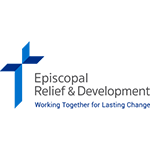Fostering Social Change to End Violence Against Women and Girls
HIGHLIGHTS
- Violence against women and girls is pervasive around the world and occurs in all settings and among all socioeconomic, religious, and cultural groups.
- We are supporting Episcopal Relief & Development to apply a behavioral lens to its tools, materials, and approaches for preventing violence against women and girls to ensure they are accessible and actionable and support a pathway to sustainability and community ownership.
The Challenge
Violence against women and girls is pervasive around the world and occurs in all settings and among all socioeconomic, religious, and cultural groups, with the most common perpetrators of violence being intimate partners. Efforts to end violence against women and girls are strengthened by taking an individual and community-level approach and by engaging men as allies.
Episcopal Relief & Development and its partners work to prevent and respond to violence against women and girls by equipping faith and community leaders to transform harmful norms and connect survivors of violence to services, support, and justice. Faith leaders are trained and equipped to speak out against violence and in support of rights for women and girls and to act as agents of change by facilitating dialogue in their communities.
Applying a behavioral lens can help to strengthen such programming by encouraging individuals to act as agents of change against violence and by shifting community-level norms and behaviors.
Our Approach
Our collaboration began in Liberia, where we applied a behavioral lens to understand the program’s impact and strengthen tools and materials—such as discussion aids for faith leaders—to make them more accessible and actionable, and support the program’s pathway to sustainability and community ownership. We are currently supporting the program’s scale-up to other settings and expansion to reach additional populations, including youth, men, and traditional leaders. Our collaboration has supported Episcopal Relief & Development and other program stakeholders to:
- Parse out the many behaviors—i.e., decisions and actions of individual actors—that occur throughout the program and are essential to shifting community norms around violence against women and girls.
- Guide program stakeholders to identify program strengths, opportunities for improvement, and implications for sustainability and community ownership.
- Design new and adapted tools, materials, and approaches that respond to these learnings and incorporate insights from behavioral science. This includes, for example:
- An activity that helps foster peer accountability among community members by collectively identifying the roles they play in ending violence against women and girls in their community.
- An interactive game that guides young people to learn, reflect, and build confidence to question harmful norms and behaviors.
- Action planning activities to inspire collective action within communities to end violence against women and girls.
Takeaway
Interested in our work applying behavioral science to global health? Email health@ideas42.org or reach out to us on LinkedIn to join the conversation.



